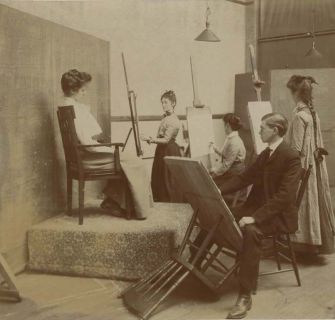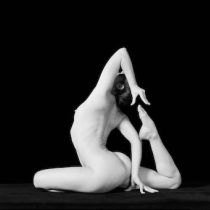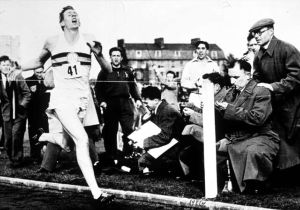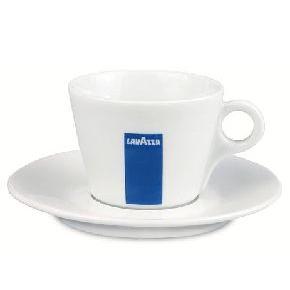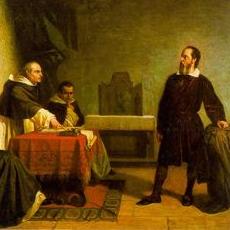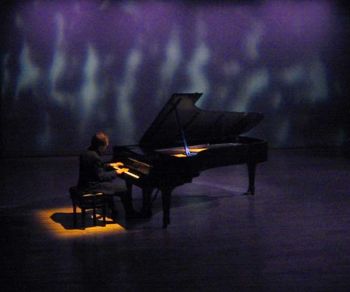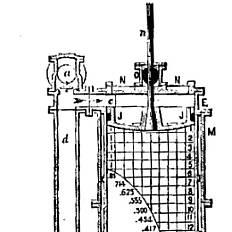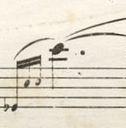After many years, I figured out what many eighteenth-century musicians must have known: 9/8 meter is in three. (There are three beats in each measure.) 9/16 meter is in one. … [Read more...]
Lineage
After a concert I played in Munich in May, there was a question-and-answer session. (I performed music written by Alvin Curran, Sylvano Bussotti, and Earle Brown.) One audience member asked if a performer of newish music still needs to study Chopin's etudes? Since the pervasive use of photography by visual artists, the question arises in art schools: "Do art students need to learn how to draw?" To the question in Munich, my immediate … [Read more...]
Triangle
I perform a piece with Butoh artist Maureen Fleming in which I play Philip Glass's Etude No. 5. The performance includes a video of Maureen moving, projected larger-than-life-size on a scrim. Behind the scrim, Maureen performs live. In front of the scrim, onstage, I sit at a piano and play the etude. Maureen made the video first. She started improvising movements and shooting video, with careful, subtle lighting. The movements are slow … [Read more...]
Piano Darwinism
Olivier Messiaen's Quartet for the End of Time has gotten easier to play. Fifteen years ago, I learned the piece and performed it, finding the music quite difficult. There were rhythmic complexities, and ensemble challenges. Especially in the first movement ("Liturgie de cristal"), andin the sixth movement ("Danse de la fureur, pour les sept trompettes"), it was difficult just to stay together with the other players. Around the world last … [Read more...]
Brand
"We switched to Lavazza." I already guessed, from the cups and paraphernalia with the particular blue of the brand. My favorite place to drink espresso in New York City has succumbed. Lavazza is good actually. And it's reassuring to find a shop brewing "Italy's Favorite Coffee" in some unlikely town (Hannover) when you want a shot of the black elixir. But, lots of other coffee tastes are disappearing. The world is being Lavazzafied! And, I'm a … [Read more...]
Matter of opinion
After several master classes at the Ecole Normale de Musique in Paris, given by several of us pianists, a student asked me: "Isn't it all just a matter of opinion?" And after so many diverging ideas and approaches, strongly expressed, who could blame anyone for asking that question? With so many differences, perhaps opinions just seem like ... random thoughts? I told him what I believe. "In music -- or politics, or anything -- the 'best' … [Read more...]
First Glass
Tim Page suggested I play some music by Philip Glass. It was a solo piano arrangement of part of the opera Satyagraha -- Gandhi's final, Act 3 aria. Tim wanted this music for a solo piano CD we were making for BMG's Catalyst label. The arrangement wasn't easy. According to Tim, the pianist Rudolf Firkusny had struggled with it, and given up -- Firkusny thought it was too hard to play! Though the Catalyst recording was never made (some details … [Read more...]
Resolve
In classical music, many gestures need to "resolve." A dissonance, a departure from the harmonic (or melodic, or rhythmic) norm needs to be brought back to normality, disturbances need to be calmed -- "action" needs resolution. Chopin: Opus 44 This dotting of the "i," this attentive management of the small phraselet, is often subsumed in an attention to, or a desire for larger shapes. But music becomes generalized very easily. Large … [Read more...]
Molecular Piano
Before, I have spoken of "extreme" piano, related to the phenomenon of "extreme sports" -- I was talking about the masochistic marathon of Alvin Curran's Hope Street Tunnel Blues III. Now, I want to propose the notion of "molecular piano." I'm thinking of "molecular gastronomy" as practiced by Ferran Adrià and many others (focusing on ambiguities and subtle transformations -- from one state of edible matter to another). And, I am thinking too of … [Read more...]
Help Wanted
Talking to an internet start-up guy, it struck me: I need an intern. There's a new CD -- Time Curve -- coming out very soon on Arabesque (my playing of music by Glass and Duckworth). It's not quite "classical," not "new age" (although that may be how Amazon.com and other internet sellers will niche it). Some people use the term "alternative classical" or "alt classical"... From the statistics I have, the people who download my recordings … [Read more...]
One day
When I was a kid I read a lot of books about musical performers, books filled with fantastic tales, of adventures on tour, of transcendental virtuosity -- in the pre-recording era. This stuff can fire a teenager's imagination. After reading about Arthur Rubinstein learning Franck's Symphonic Variations on a long train ride (he went from the station to the first rehearsal), and Josef Hofmann performing a short piece after only hearing another … [Read more...]
Chiff
The onset, the leading edge, of a note played on the piano is sudden. All the intensity of the tone comes right at the start, and then is followed by rapid decay. Close-up in a small room or in some recordings, we may be very aware of this edge. The slightly percussive beginning of a tone played on the organ is called "chiff." It can come from the physical opening of the valve which moves aside so air can flow through a pipe and make sound, or … [Read more...]
Interior Decorator
Wrote Arnold Schoenberg (in "Problems in Teaching Art"): "Is technique a cause or an effect, a by-product? Expressive content wishes to make itself understood; its upheaval produces a form. A volcano erupts, the devastation makes an ornamental effect; a steam-kettle explodes, and the objects it strews around fall at points one could exactly calculate on the basis of relationships of tension, weights, distances and resistances. One can, … [Read more...]
All feet
The patterns of stress inform everything. More, less. Less, more. Our languages (our speech) inform our music, our thought, our designs, and concepts -- our emotions? I am -- iamb! In Western European music, the falling inflection predominates, strong, then weak. That's the two-part poetic foot, the "trochee." "Iambs" (weak - strong) are rarer in music and (?) in French, German, Italian (so rare as to need a marking -- città). In these languages, … [Read more...]
Roll
Some elaborate preparations to long notes in piano music are attempts to mimic the ways singers can begin a sound. The many shadings and extensions of initial consonants may get translated into piano music as multiple short notes, usually notated in small print. Though often marked with a slur, this kind of writing can still be confusing. The articulateness of the keyboard is certainly what's not wanted -- these are compound sounds. I … [Read more...]


